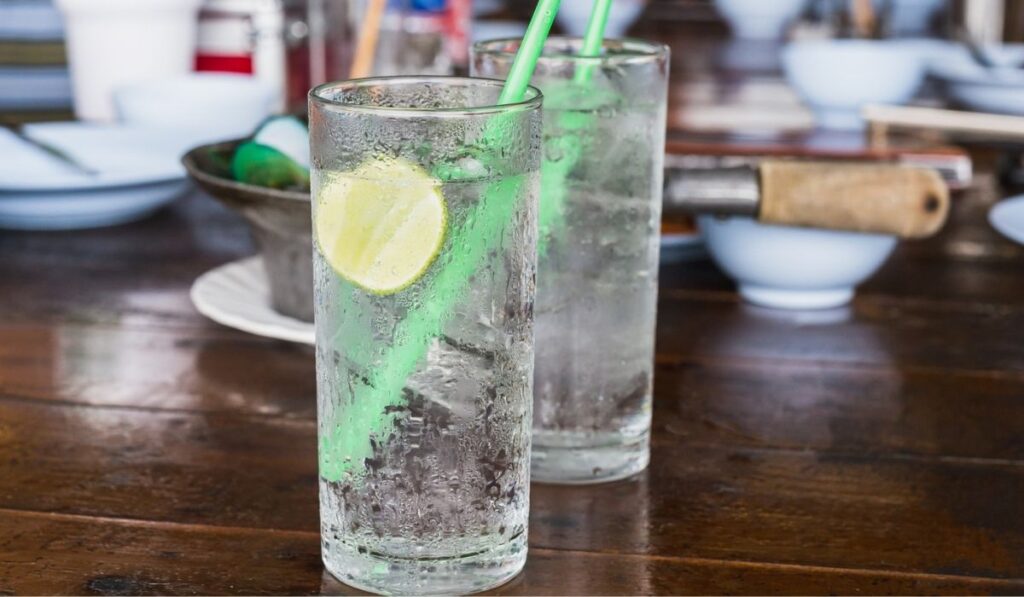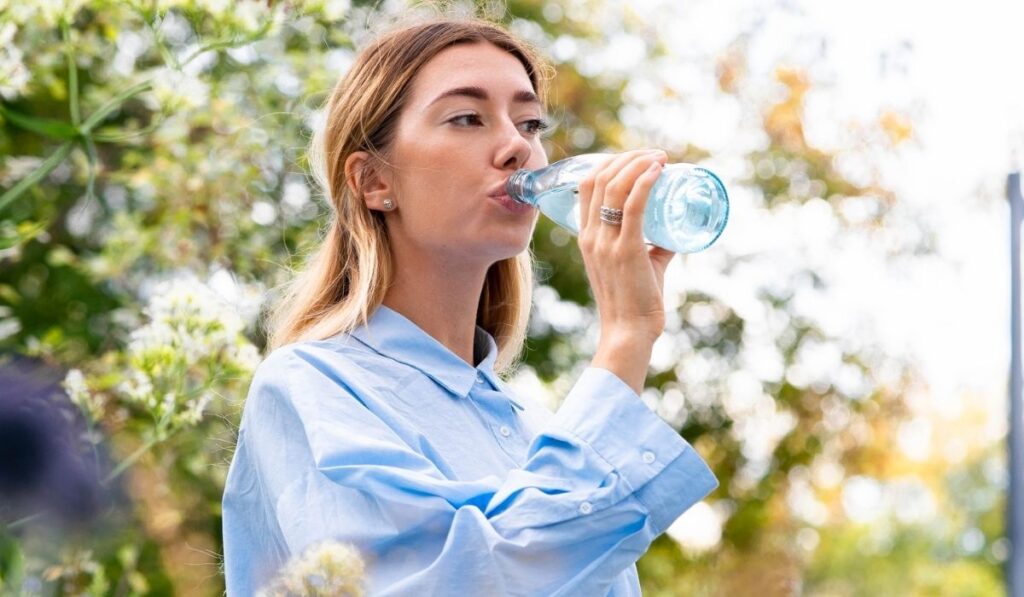The problem with sparkling water is not just with the carbonation alone — it’s with the ingredients that are often added for flavor. Carbonation does not have a particularly serious effect on your teeth, but the other contents of the water (especially sugary and/or acidic flavorings) can cause issues.
Plain sparkling water does not pose a huge risk to your teeth, despite being slightly acidic. Sparkling drinks that have added sugar, citrus, or other flavors are more likely to contribute to tooth decay in the same way a soda can. Drinking non-sparkling water after reduces negative effects.
Sparkling water has carbon dioxide, which can also cause bloating, burping, and gas-related issues. And with the high sugar content found in many sparkling beverages, other health risks become inevitable. Let’s take a deeper look at the effects of sparkling water on your teeth and how best to handle them.
What Does Sparking Water Do To Your Teeth?

Sparkling water is more acidic than ordinary water, which is primarily why it has a more harmful effect on your teeth than regular water. Still, science has shown it comes with a relatively modest risk of tooth damage.
While sparkling water is undoubtedly the better option compared to soda and other sugary beverages, its acid content is detrimental to your teeth. Acid erodes your enamel, causing your teeth and gums to become sensitive and painful.
Risks Associated With Sparkling Water
If you dislike drinking plain water, sparkling water is an excellent substitute that is better for you than sugar-sweetened drinks and fruit juices. Unflavored and unsweetened sparkling water is the healthiest option. Remember, some sparkling waters may include additives or sweeteners.
Sugar-sweetened sparkling drinks might contribute to tooth decay. However, simple sparkling water has a negligible effect on your teeth, especially when compared to soda use.
You can also keep your teeth healthy by brushing and flossing regularly, as well as by rinsing your teeth with a mixture of sparkling and plain water.
The carbonation in sparkling water also produces gas and bloating in some people. If you realize you are producing an excessive amount of gas when drinking sparkling water, it is better to switch to plain water.
Does Perrier Have the Same Effect on Your Teeth as Sparkling Water?
Perrier (on Amazon) is quite good for your teeth. In a study by the ADA, only two of the 379 drinks they looked at had a high pH while the others had a low pH. McGill University researched the pH of sparkling water and concluded that the beverages should ideally not dip below a pH of 4.4.
Any beverage with a pH level of less than 5.5 is potentially harmful to your teeth. This is because a pH of less than 5.5 creates an environment conducive to calcium migration.
Most beverages lack dissolved calcium; therefore calcium is extracted from your teeth by osmosis to bring them into equilibrium with the water.
This is a process that takes a long time and is naturally regenerated, but if it happens a lot or your mouth’s pH is unusually acidic, it could cause problems.
Is Quinine Safe for Your Teeth?
Quinine (on Amazon) is an additive frequently present in tonic water that has several potentially dangerous side effects. The quinine gives tonic water its bitter taste.
There is no direct link between quinine and tooth damage, but it is often found in sparkling water, which does have an adverse effect on your teeth.
Furthermore, tonic water frequently has additional sugar, which makes it even worse for your teeth than soda water. Mineral water is often free of carbonic acid and sugar, making it a healthier option for teeth and gums, but it can still be acidic.
Individuals who consume tonic water daily may want to consider the additional sugar and calories they are ingesting.
The exorbitant amount of quinine in tonic water can cause additional health problems, such as:
- Abnormal heartbeat.
- Kidney ailments
- An extreme allergic response
- Electrolyte disproportion
- Vision or eye problems
- Consequences of bleeding thrombocytopenia (decreased blood platelets) toxicity to the lungs
Should I Stop Drinking Sparkling Water?

When deciding whether to drink a bottled sparkling water, be sure to check the nutrition label. If the only thing in the drink is carbonated water, the risk of injury is very low, as long as you keep your teeth clean.
When sugar, citric acid, or other flavorings are added to the water, It is more likely to contribute to tooth decay. Acidic drinks, like coffee, wine, and sugary drinks, cause more damage to the teeth the longer they are in contact with them.
If you sip coffee or soda throughout the day and between meals, you expose your teeth to the acids for a longer period than if you consume a portion with a meal.
The same holds true for sparkling water, particularly when it is flavored with citrus fruit. Consider drinking a glass with your meals and then switching to still water in between.
After drinking sparkling water, wait about 30 minutes before gently brushing your teeth. This is because acids can eat away tooth enamel. In the meantime, you can rinse your mouth out with water immediately after you finish your drink.


